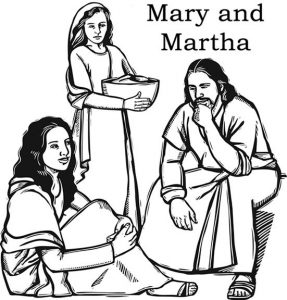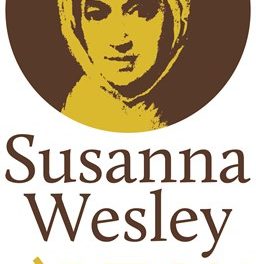 Behold, the days are coming, says the Lord God, that I will send a famine on the land, not a famine of bread, nor a thirst for water, but of hearing the words of the Lord. They shall wander from sea to sea. And from north to east; They shall run to and fro, seeking the word of the Lord, but shall not find it – Amos 8:11-12
Behold, the days are coming, says the Lord God, that I will send a famine on the land, not a famine of bread, nor a thirst for water, but of hearing the words of the Lord. They shall wander from sea to sea. And from north to east; They shall run to and fro, seeking the word of the Lord, but shall not find it – Amos 8:11-12
Visions are means of divine communications, and a good example is the fourth vision of Amos in chapter 8. The vision of the famine of the Word is beyond the power of UNICEF though the word of God is as indispensable as food and water. The highest priority in life is to listen to God’s Word and to receive His gifts of life and salvation. Like the people of OT, we cannot survive without the Word. The time Amos spoke about – a famine of God’s word is not that God’s word is absent because like our time, we have different versions of ‘the Bible on our bookshelves, on our laptops and on our Ipads and smart phones. But do we reach for it as often as we download bestsellers or play our game apps?’ In our media-driven world, words are a massive feature, yet little actually changes. ‘Lives are not saved. Injustice is not exposed and removed. Peace is not created.’ Famine of the Word in Martha’s world challenges the empty words of our time and calls on we preachers to account with the readiness to change and hold to Bible standard with accompanying actions.
One can open his or her home to visitor without opening the ears. Martha opened her house to Jesus without opening her ears to him. Listening is about hearing with personal intention and retention. The story of Mary and Martha is actually about the necessity of the retention and priority of the Word of God in a life of active service for God rather than competition or debate on Martha as the “suffering servant “ and Mary as the “sitting saint.” As a model of activism, Martha lost focus under the burden of activity and self pity; sense of duty rather than devotion. She became depressed, ‘feeling as if she had to do everything by herself and alone.’ The Good News is that both were true-hearted followers of Jesus, however Mary’s choice, being spiritual and eternal would never be taken from her unlike Martha’s choice that would be taken from her, for her services would die with her. There is nothing bad in serving others, but when such service distracts us from hearing and responding to God’s Word, then it is not good.
Famine of the Word in Martha’s World is about distraction by busyness which ‘generate the ills of a society mired by misplaced priorities.’ The challenge is that ‘a culture where the promise of freedom of religion has become freedom from religion, promotes a self-induced famine coupled with the fear to speak the Truth boldly in order to avoid negative backlash … Hostility and hypersensitive also tends to breed silence and conformity,’ just as Martha wanted to Mary to conform to her own busy activities.’ Like Martha, people and churches could be their own worst enemy and enemy of the Gospel by not getting their priority right. Luke 10 is a key discipleship text for humility and in highlighting the trap of judging others whose ways, theology and philosophy differs from our own.
As against the first century culture where women were often regarded as unworthy to receive instruction at Jesus’ feet, Mary provides a model on how to feast on the Word of God so as to overcome the famine of the Word in the Martha’s world. Martha was consumed with her subjective assessment that her particular chosen duties were right and more important. Ignorant of the Words of God is the greatest human and church tragedy, especially when our ignorance results from our wilful rejection of the authority of God’s Word (Ps 119:130, Jn 7:17). Our souls hunger for renewal and survival just as the human body needs a certain amount of calories per day for renewal and survival. When souls are not added daily in the church, there is decline unlike in the early church when souls were added daily because they were fed daily the Spirit-filling Word of God. There is famine of the Word today because many are living on a Sunday-Sunday morning sermon diet hence, no health and growth.
In such a famine time as this, the saying is, ‘the Bible said it, and since it is outdated and not up to societal and political standard of the day, we the people will settle it,’ as against a popular saying a while back which stated, “The Bible said it, so that settles it.” The church is declining because many Christians are getting distracted by busyness of activities and falling away due to a lack of sound teaching coming from the pulpit. To overcome the famine of the Word, we need to speak out like Amos against easy-going, politically correct, and anything-goes style of teaching that continue to rot the mind of countless souls. The church may be good in social actions which is not exclusive to Christianity alone, however, the scandal of biblical illiteracy is our major problem today.[1] The ten commandment has become ten suggestions with tendency to compromise. We are in a Martha’s world shaped by misplaced priorities, unwarranted overconfidence, and pretext of being too busy.
The Word of God is the saving Gospel message that reconciles people with God. To overcome the famine of the Word in our Martha’s world is to overcome the dichotomy between listening and serving, hearing and doing. It is argued that listening to God’s word is inextricably connected to following God’s ways of justice, truth and compassion. Just as Amos challenged Amaziah, Jesus wanted Martha to listen to the Word before she acted, rather than assuming she knew what needed to be done. Martha’s world is where many assumes they know what need to be done. It is a world of pride and self serving. When busyness ‘becomes a status symbol … where we get our security, validation, popularity and pleasing,’ it becomes ‘a good excuse for not dealing with the first things in our lives and churches. Lord in Your mercy, heal us
[1] http://www.christianitytoday.com/edstetzer/2014/october/biblical-illiteracy-by-numbers.html










Thank you so much for this timely message, your Very Rev.
It seems like we are now in post Christian era.
The doors of ear and heart of people are practically locked against the Word of God
No more appetite, zeal and desire for the Word of God
The church today is full of needless activities, needless competitions and we are so busy doing nothing.
We truly need a old time religion, when we will be able to say like David “Thy Word have I kept in my heart, that I may not sin against you.
God we are waiting for your revival!
Thanks to God sir. There is no famine of people, cathedrals, Camps and titles, yet no change. The story of Mary and Martha provides a good reflection for famine of the Word today as spoken of it in the Old Testament.